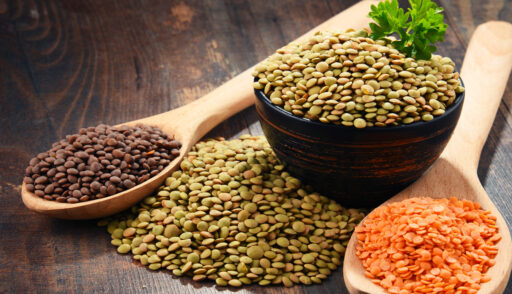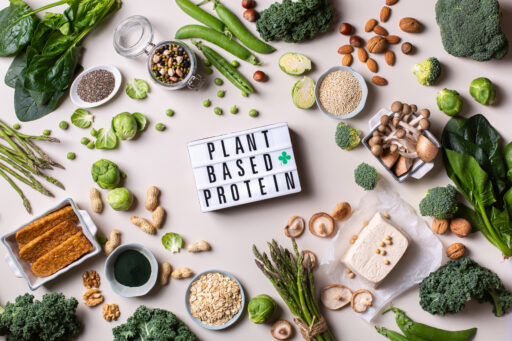About 55 million people suffer from dementia globally, as of September 2022 – and it’s growing. By 2030, it’s expected to hit 78 million, and by 2050, 139 million. Dementia has risen to the fourth leading cause of disability adjusted life years in the US, according to a 2018 study in JAMA. Since dementia is not an inevitable consequence of aging, what can we do to prevent it? One of the most important things you can do is to learn about the connection between veganism and dementia prevention.
Dementia is an umbrella term that includes various conditions, like Alzheimer’s and vascular dementia. Some risk factors are out of our control, like genetics and past head trauma. But most risk factors are lifestyle factors. Eating a healthful, plant-based diet is one of the most essential pieces of preventing dementia. In turn, this provides other protective factors, such as supporting the maintenance of a healthy weight and healthy blood pressure, cholesterol levels and blood sugar levels.
- How are veganism and dementia prevention linked?
- 1. Unsaturated fat
- 2. Plant-based protein
- 3. Fiber
- 4. Plant-based choline
- 5. Antioxidant and anti-inflammatory properties of plants (especially greens and berries)
- 6. Metabolites that reduce arterial stiffness
- Veganism and dementia prevention: a whole-foods plant-based diet plus other healthy lifestyle factors
How are veganism and dementia prevention linked?
Animal products increases one’s risk of dementia primarily through saturated fat intake. Even moderate intake of the saturated fat found in meat, eggs, butter and cheese has been found to increase dementia risk, according to this 2021 study and this 2006 study. Eating a fatty diet in general increases one’s risk through increased risk of atherosclerosis (hardening of the arteries). Additionally, even minimal intake of dairy: one glass of cow’s milk per day during midlife has been associated with 10% increased cognitive decline overall.
In contrast, whole foods plant-based vegan diets protect against dementia by reducing the likelihood of dementia risk factors, like inflammation, high blood pressure, poor gut microbiota, high cholesterol, heart disease. They also improve glycemic control, reducing the risk of diabetes, which increases the risk of dementia. A whole-foods plant-based vegan diet helps protect against the development of dementia through intake of the following mechanisms:
1. Unsaturated fat

Moderate unsaturated fat intake is protective against dementia, as is avoiding saturated and trans fats commonly found in animal-based foods. Polyunsaturated fats in particular have been associated with reduced dementia risk
2. Plant-based protein

Substituting animal protein for plant-based protein is associated with a lower risk of dementia-related death, according to a 2021 study published in the Journal of the American Heart Association.
A 2022 study in the American Journal of Clinical Nutrition found that for every 5% of calories that came from plant protein instead of carbohydrates, there was a 26% lower risk for developing dementia. Beans and legumes had the strongest protective association. Peas and lima beans in particular were associated with a 28% lower risk of cognitive decline for every additional three servings per week
3. Fiber

A February 2022 study published in the journal Nutritional Neuroscience found that higher fiber intake is also associated with reduced dementia risk. Those who consumed the most fiber daily (an average of 20 grams) had the lowest rates of dementia, while those who ate the least (an average of 8 grams) had the highest rates.
Fiber-rich diets help lower weight and blood pressure, which protect against vascular dementia. Fiber also promotes the proliferation of good bacteria in the gut, which may reduce brain inflammation through the vagus nerve. Similarly, a 2021 study in the journal Microbiome found that a lack of fiber, which alters gut microbiota, has also been found to lead to cognitive impairment.
4. Plant-based choline

While some sources advocating for the consumption of animal products claim that the choline found in animal foods is vital to prevent dementia, this is false. Although choline is an essential nutrient, animal-based sources of it are associated with higher risk of heart disease, stroke and death. In contrast, plant-based sources of choline provide us with this nutrient without increased risk of disease.
Choline is necessary for memory, mood, muscle control and other brain and nervous system functions. But a byproduct of dietary choline, TMAO, can increase the risk of heart attack, stroke and death.
However, whole-foods plant-based vegan diets have shown to be protective against the harmful effects of choline.
According to the National Institutes of Health, grains, nuts, seeds, and beans are plentiful sources of choline. In particular, soybeans, shiitake mushrooms, red potatoes, wheat germ, kidney beans, quinoa, brussels sprouts, broccoli, dry roasted peanuts, cauliflower, peas, sunflower seeds, brown rice, whole wheat pita bread, cabbage and mandarin oranges are rich sources.
5. Antioxidant and anti-inflammatory properties of plants (especially greens and berries)

Green leafy vegetables are most strongly associated with decreased rate of mental decline. Additionally, certain kinds of plant chemicals called flavonoids are especially protective against dementia. Foods with high flavonoid contents shown to provide the greatest protection against dementia include tea, apples, pears, blueberries and strawberries.
Strawberries in particular may reduce the risk of Alzheimer’s, as their antioxidants help prevent tau tangles in the brain, a sign of cognitive distress. This is due to the presence of pelargonidin, which has antioxidant and anti-inflammatory compounds. It’s found primarily in berries and is associated with better cognition and reduced Alzheimer’s dementia risk. Blueberries have also been studied in depth over their connection to dementia prevention.
In addition, nutrients in greens protect against inflammation, stress and other damage to the brain. Consumption of green leafy vegetables has been linked to slowing the general cognitive decline associated with aging. Those with the highest intake in this study (about 1.3 servings per day) scored about 11 years younger in age than those who ate the least.
6. Metabolites that reduce arterial stiffness

Myths about soy about, including that it increases the risk of dementia. Actually, the opposite is true. Soy improves cognition. While one study conducted in Indonesia claimed that tofu increases the risk of dementia, this was due to a confounding variable. In Indonesia, formaldehyde is often added to tofu to preserve its freshness. Formaldehyde is a neurotoxic carcinogen, which explains this supposed link.
Soy products cause the gut to produce a metabolite called equol, which may reduce the risk of dementia by reducing arterial stiffness. Geographic rates of dementia support this, as Japanese populations have more gut microbiota that produce soy metabolites as compared to Americans, due to higher consumption of soy.
Veganism and dementia prevention: a whole-foods plant-based diet plus other healthy lifestyle factors

While a whole-foods plant-based vegan diet is an essential piece of dementia prevention, it works best if fortified with other protective factors. For instance, a 2020 study in the journal Neurology measured the impact of healthy lifestyle factors on the prevention of dementia, including over 150 minutes of moderate to vigorous exercise weekly, a high score on the predominantly plant-based Mediterranean-DASH Diet, light to moderate alcohol intake, engagement in cognitive activities and not smoking. Those with four to five protective factors had a 60% lower risk of dementia.
Be sure to keep a whole-foods plant-based diet as one of these factors, though. A 2019 study published in Innovation in Aging found that even after adjusting for age, sex, education, marital status, physical activities, smoking, alcohol drinking, hypertension, diabetes, hyperlipidemia, and ischemic heart diseases, vegetarians still had a 38% lower risk of dementia.
So, to reduce your risk of dementia, avoid the dietary risk factors: saturated fat from animal products, a fatty diet overall, and dairy consumption. Eat a whole-foods plant-based vegan diet to reap the protective benefits from unsaturated fat, plant-based protein, fiber, plant-based choline, antioxidants, and metabolites from consuming plants. These are the six powerful ways in which veganism and dementia prevention are connected.


